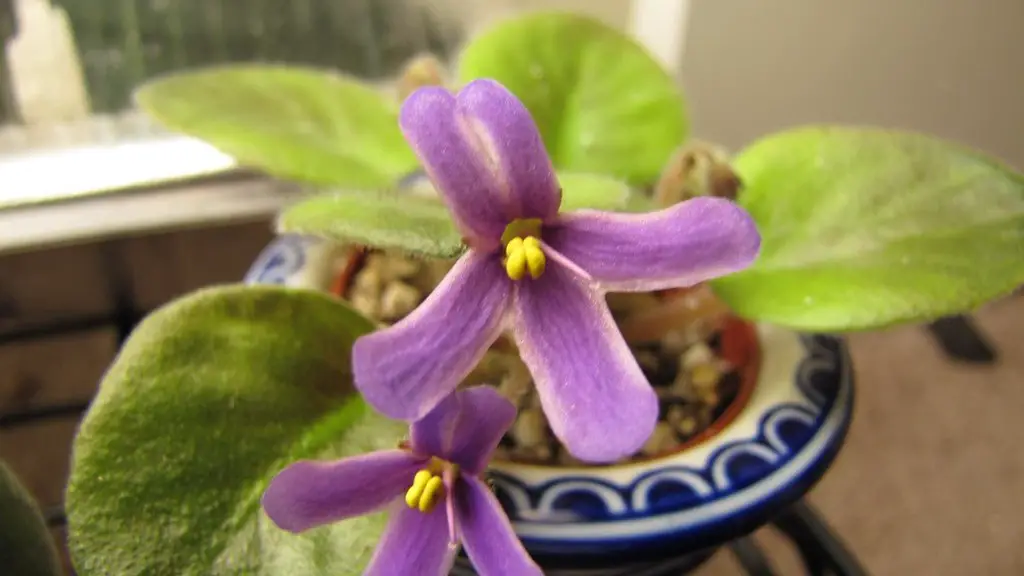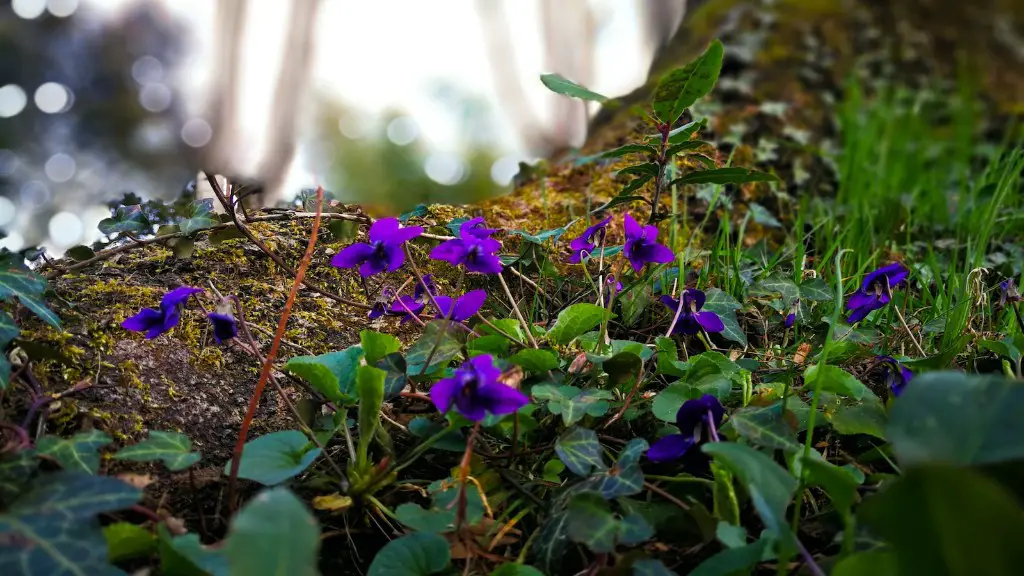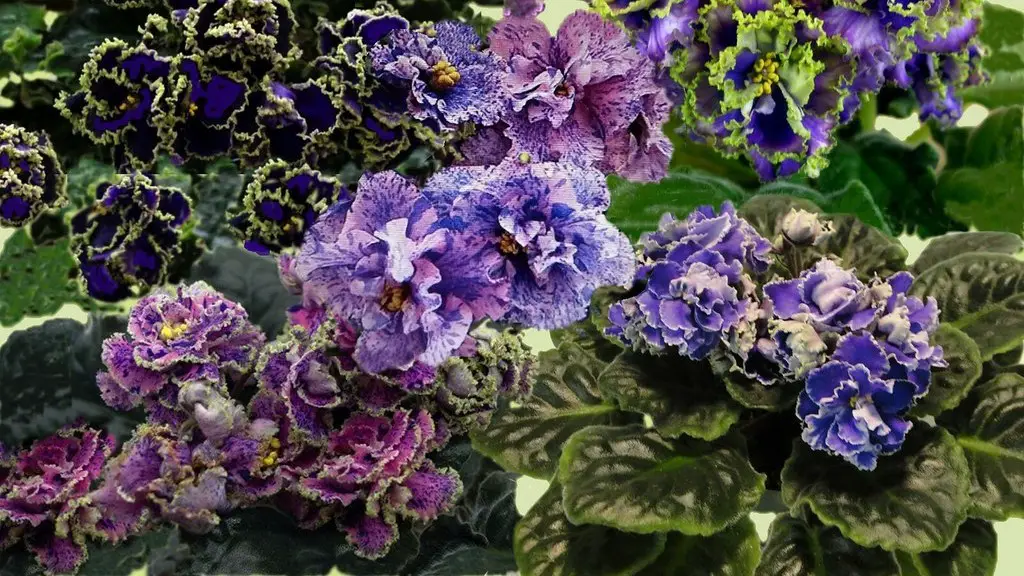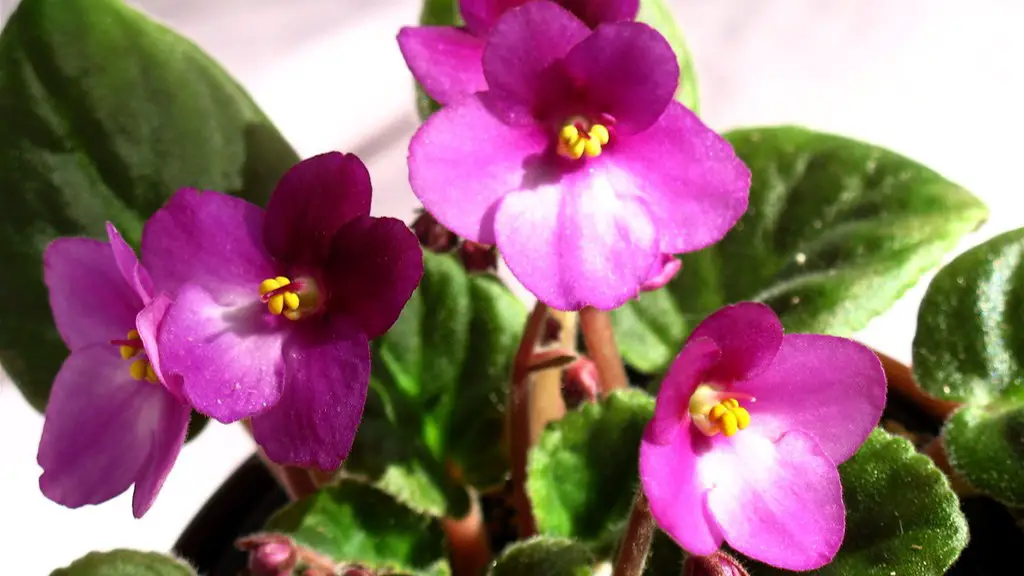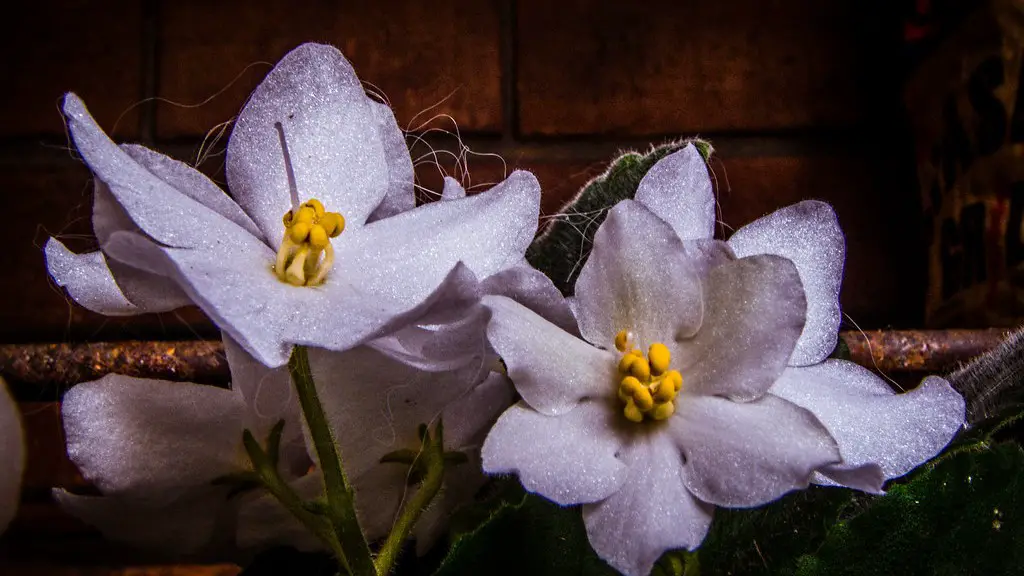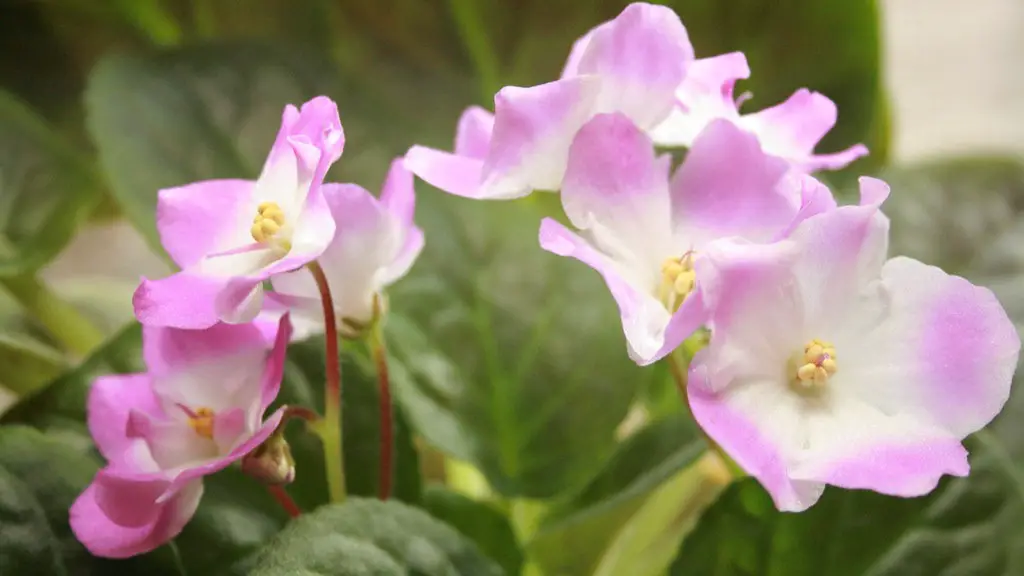African violets are popular houseplants, but they can be finicky about blooming. There are several reasons why your African violet might not be blooming. It could be that the plant is not getting enough light, or it might not be getting the right type of fertilizer. overwatering can also be a problem. If the soil is too wet, it can prevent the plant from blooming.
The most common reason for African violets not to bloom is that they are not getting enough light. African violets need 14-16 hours of light every day in order to bloom. They also need to be in a room with a temperature between 65 and 75 degrees Fahrenheit.
How do you get an African violet to bloom?
To ensure that your African violets are getting the ideal amount of sunlight, place them in an east-facing window with a sheer curtain to block the sun’s harshest rays. African violets need eight hours of darkness every night, so be sure to keep them in a dark room or place them in a box at night if you are using a grow light.
African violets are beautiful flowers that can bloom nearly year-round. If you are able to provide the correct conditions, expect your African violets to bloom 10-12 months each year. Each bloom lasts for about 2-3 weeks, making them a great addition to any home or office.
Does Epsom salt help African violets bloom
Epsom salts are a great way to provide plants with essential magnesium and sulfur. Two minerals that are needed to produce beautiful blooms and healthy foliage. Just mix one and a half teaspoons of Epsom salts in a quart of tepid water and swirl to dissolve. Water your African violets (below the leaves) with this solution once a month.
African violets typically bloom every 6 to 8 weeks. With the right growing conditions, they can produce several flowers at a time that last for several weeks. If you disbud the old flowers, new ones should bloom within a short period of time.
Can you use Miracle Grow on African violets?
African violets are a type of plant that thrives in well-drained, slightly acidic soil. Miracle-Gro® Indoor Potting Mix is a type of soil that is specifically tailored to provide the ideal growing environment for African violets and other indoor plants. This soil mix is designed to drain well and retain moisture, while also being slightly acidic to support the growth of African violets.
If you have an African violet that you water once a week, you can set up a wicking system to make sure it never gets over-watered. This system will wick water up from a reservoir into the soil of the plant, keeping it moist but not soaked.
Should African violets be misted?
It is important to not over-water African violets, as this can cause crown rot. Water the plant at soil level, using room temperature water, and be sure not to mist the foliage, as this can cause permanent leaf spotting.
African violets are beautiful plants that thrive when they are fertilized once a week with a mild fertilizer. A balanced fertilizer like a 20-20-20 or a 15-20-15 will work well in most situations. African violets need to be fertilized more often than other plants because they are such high-light plants.
How often should you feed African violets
If you want your African Violet to stay healthy throughout the year, you need to fertilize it during the spring and summer months. During these months, you should fertilize your African Violet once every 14 days. However, during the fall and winter months, you shouldn’t fertilize the plant at all to prevent over-fertilizing.
If your African Violet plant has been over-watered, the soil will retain too much water and cause the leaves and /or leaf stems to turn soft, limp or mushy. If this happens, you should let the plant dry out for a few days and then cut back on the amount of water you give it.
Can you use hydrogen peroxide on African violets?
Adding hydrogen peroxide to water is a common way to prevent algae growth. However, it is important to note that the plant may not absorb the water if it is too concentrated. To resolve this issue, pour the water through the top of the pot to encourage the plant to absorb the water.
It is important to keep the soil around the roots of your plant moist, but not too wet. Allow the top layer of soil to dry out before watering again. This will encourage blooming. Water from the bottom by placing the plastic grower’s pot in water and allowing the plant to absorb the water for no more than 30 minutes.
Should African violets be watered once a week
African violets need water when the soil is almost dry. You usually need to water them about once a week, but this can depend on conditions like the temperature, the season, and the size of the African violet’s container. The best way to water African violets is by bottom watering.
To ensure your African Violets are getting enough sunlight, place them near an east- or west-facing window. Indirect sunlight is best for these plants, as direct sunlight can scorch their leaves and flowers. If you notice your Violets’ leaves beginning to turn green, this is a sign that they are getting too much sunlight and you should move them to a location with less light.
How often should you change the soil in African violets?
African violets are beautiful, delicate plants that add a touch of color and elegance to any home or office. They are also relatively easy to care for, as long as you remember to re-pot them in fresh soil every six months.
While African violets can technically survive in the same pot of soil for years, they will not thrive. Re-potting them every six months gives them a chance to renew themselves and ensures that they will continue to bloom and grow healthy.
If you have an African violet that is starting to look a little sad or lackluster, it is probably time to re-pot it. You can do this easily at home, and your plant will thank you for it!
African violets need bright, indirect light in order to thrive. A spot near an east or north window is often a good choice, as long as the plant isn’t in direct sun. If you don’t have a suitable window, you can place African violets under a fluorescent light fixture containing two 40-watt fluorescent tubes.
Final Words
There are a number of reasons why African violets may not bloom. They may not be getting enough light, or the temperature may be too low. African violets also need a well-drained soil that is high in organic matter. If the plant is not getting the proper care, it will not bloom.
There are a number of reasons why African violets might not bloom. One reason could be that they are not getting enough light. African violets need about 12 hours of light per day in order to bloom. Another reason could be that they are not getting enough fertilizer. African violets need to be fertilized every two weeks with a fertilizer made specifically for African violets. Finally, another reason why African violets might not bloom could be that they are not getting enough water. African violets need to be watered about once a week, making sure that the water does not touch the leaves of the plant.
